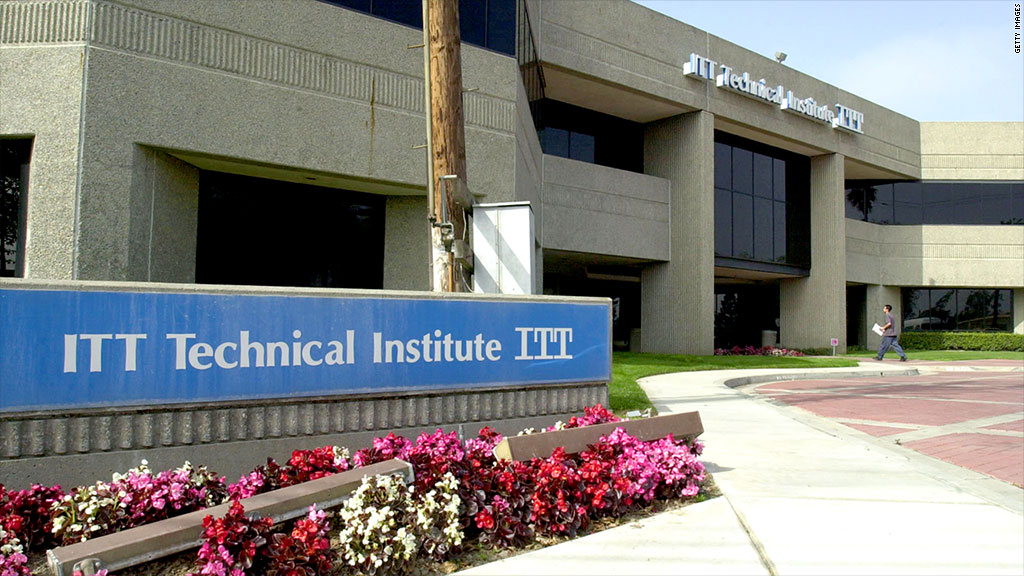
For-profit colleges and their investors have had a rough couple of years. But they're hoping for easier days ahead under a Trump administration.
Stocks of for-profit education companies spiked the morning after Election Day, and they've continued to outperform the overall market ever since Trump's win. Both DeVry (DV) and Strayer (STRA) are up about 23%. The University of Phoenix parent company Apollo Education Group (APOL) has risen nearly 8% since November 8, and Capella University's (CPLA) stock is up about 15%.
Those are some of the biggest for-profit colleges left standing after a tumultuous period for the industry. Many saw a decline in enrollment as the economy rebounded and it became easier for people to get jobs. Then a crackdown spearheaded by the Obama administration led to the all out collapse of Corinthian Colleges and ITT Technical Institute over the past two years. Both colleges shut down dozens of campuses, suddenly closing their doors on tens of thousands of students.
Related: How ITT Tech went up in smoke
In general, for-profit colleges have been criticized for preying on veterans and low-income students, and making false promises about good jobs upon graduation. But many students at for-profit colleges don't ever finish their degree. They make up about 35% of all federal student loan defaults.
Obama put in place new rules aimed at keeping the schools accountable for students' outcomes by threatening to withhold federal funding. Last year, he implemented the "gainful employment rule," which requires for-profit colleges to show that a typical graduate's estimated annual loan payment does not exceed 20% of his or her discretionary income, or 8% of his or her total earnings.
President-Elect Trump has not said whether or not he would reverse Obama's rules. But some Republicans have been critical of the new regulations, claiming they are too tough on businesses that are trying to offer a career-oriented education to non-traditional students.
Related: Trump's student loan payment plan looks a lot like Obama's
ITT Tech was facing lawsuits for its recruitment tactics, lending practices and job placement figures. It shut down after the government took away federal funding for new students because the school failed to comply with its accrediting agency's standards.
For-profit schools tend to enroll students who rely heavily on federal student aid in the form of grants, loans and military benefits. Without that aid, many students wouldn't be able to go and the school would lose a huge chunk of its revenue.
Related: What President Trump means for your wallet
Other for-profit colleges have not gone unscathed under Obama. Bridgepoint Education (BPI), which operates Ashford University and University of the Rockies, is paying $31.5 million to settle claims it misled students about the real cost of the loans it offered. And the University of Phoenix is being investigated by the Federal Trade Commission.
DeVry was sued earlier this year by the FTC for ads that allegedly deceived students. And it had to post a $68.4 million letter of credit after the government found it could not prove its longstanding claim that 90% of its graduates -- since 1975 -- were employed in their field of study within six months of graduating.
Experts on a panel that discussed for-profit colleges on Wednesday at the Cato Institute could not agree on what the Trump presidency means for the industry's future. He has yet to name a new Education Secretary and said little about higher education during his campaign.
